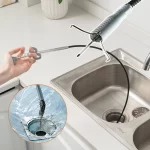Identifying the Source of the Smell
When you notice your bathroom sink smells, the first step is to find the source. Start by inspecting the sink area. Check for leftover food particles, hair, soap scum, or mold. These common culprits often hide in the drain or overflow. They can create bad odors over time. Pay attention to the drain performance. A slow drain might indicate a clog that’s causing the smell. Sniff around the P-trap, too. It’s the U-shaped pipe under the sink. It should always have water in it to block sewer gases. If it’s dry, this could be the reason for the smell. Check for any leaks around the sink. Leaks can cause damp areas where bacteria can grow. If you can’t find the source, consider hiring a professional. Plumbers have tools and expertise to spot less obvious issues. Remember, correctly identifying the source is key to effectively eliminate the bathroom sink smells.
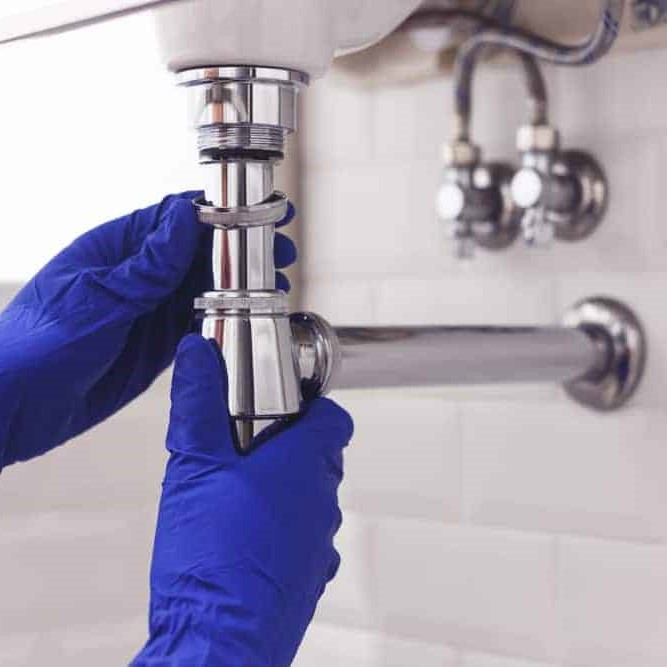 Common Causes of Odor in Bathroom Sinks
Common Causes of Odor in Bathroom Sinks
Recognizing what leads to bad smells is crucial in tackling bathroom sink odors effectively. Several factors contribute to this common household issue. Here are the main culprits:
- Biofilm Buildup: A slimy layer called biofilm often forms from a mix of bacteria, soap scum, and dead skin cells. Over time, this can emit a musty smell.
- Clogged Drains: Accumulation of hair, soap, and other debris in your sink’s drain can lead to a clog. This barrier traps odors and causes a foul stench.
- Dry P-traps: The P-trap’s purpose is to hold water and prevent sewer gases from entering your home. When it dries out, it fails to block these odors.
- Mold and Mildew: Damp conditions in bathrooms are perfect for mold and mildew to thrive. When they grow in your sink or drain, they produce a characteristic musty odor.
- Sewer Gas Leaks: These occur if there are loose connections or damage in the plumbing system. The gases have a strong, unpleasant smell and should be addressed immediately.
If you find that your bathroom sink smells, consider these factors to identify the right solution. In some cases, simple cleaning rituals can resolve the issue. At other times, you might need to delve a bit deeper into plumbing maintenance or opt for professional help. Keep these common causes in mind and regularly check your bathroom sink to nip any problem in the bud.
Routine Cleaning Tips to Prevent Odors
Maintaining a fresh bathroom sink involves regular cleaning. Here are some effective tips to prevent unpleasant smells:
- Regular Rinsing: After each use, run hot water to flush away any residue.
- Weekly Scrubbing: Use a non-abrasive scrubber and a gentle cleaner once a week.
- Drain Maintenance: Pour boiling water down the drain to remove odor build-up weekly.
- Baking Soda and Vinegar: Combine these for a natural cleaning solution. Pour down the drain monthly.
- Clean the Overflow: Use a flexible brush to scrub the overflow hole regularly.
- P-trap Inspection: Make sure it always contains water to block sewer gases.
Mix these routine actions with your regular bathroom cleaning. They can help keep the ‘bathroom sink smells’ at bay. Consistency is key. Make these tasks part of your household routine for a continuously fresh-smelling bathroom.
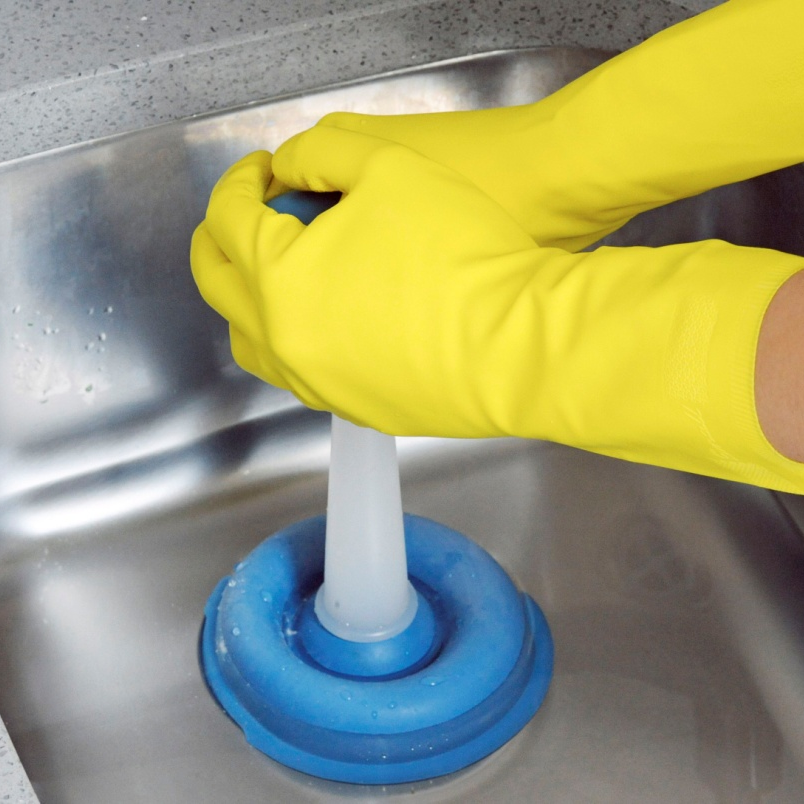 Natural Remedies for Deodorizing Sinks
Natural Remedies for Deodorizing Sinks
Natural remedies are effective for getting rid of bathroom sink smells. These solutions are safe, eco-friendly, and often readily available in your home. Let’s explore some simple, natural ways to freshen up your sink.
- Use Citrus Peels: Citrus peels are great deodorizers. Grind them in the disposal unit if you have one, or steep in hot water and pour down the drain.
- Baking Soda: It absorbs odors well. Pour a cup into the drain, let it sit, and then rinse with hot water.
- White Vinegar: It neutralizes smells. Pour half a cup down the drain. Let it work for a few minutes before rinsing.
- Tea Tree Oil: This oil has strong antibacterial properties. Mix a few drops with water and pour it down the drain to combat odor-causing bacteria.
- Salt Water Rinse: Salt is abrasive and can help clean the drain. Pour a saltwater solution down the drain to scrub away smell-causing residue.
These natural remedies can be highly effective against bathroom sink smells. Use them regularly to maintain a fresh-smelling bathroom sink.
Utilizing Chemical Cleaners Safely
When tackling bathroom sink smells, chemical cleaners can be a quick solution. However, use them with care. Here are tips for safe usage:
- Read Labels Carefully: Always check the manufacturer’s instructions before using any cleaner. It ensures proper application and safety.
- Ventilate the Area: Open windows or use a fan. Proper ventilation helps reduce the risk of inhaling fumes.
- Wear Gloves: Protect your skin from harsh chemicals by wearing rubber gloves.
- Avoid Mixing Chemicals: Combining different cleaners can cause dangerous reactions. Stick to one product at a time.
- Use as Directed: Apply the amount recommended by the label. More is not always better and can be wasteful or harmful.
- Dispose of Safely: Follow local regulations for disposing of chemical cleaners. Never pour them into the environment.
Remember, while chemical cleaners can remove odors, they aren’t always necessary. Often, natural remedies work just as well without the potential risks. If you must use chemicals, do so responsibly to keep your bathroom safe and smelling fresh.
The Importance of P-Trap Maintenance
The P-trap plays a crucial role in keeping odors at bay. Located under the bathroom sink, it’s designed to hold a small amount of water at all times, forming a seal that prevents sewer gases from entering your home. If the water in the P-trap evaporates, which can happen if the sink is not used for a period, it can allow foul smells to escape into the bathroom.
Here’s how to maintain your P-trap and avoid bathroom sink smells:
- Regular Checks: Make it a habit to inspect the P-trap for water levels. Ensure it never dries out.
- Run Water: If you have a sink you seldom use, run water through it periodically to refill the P-trap.
- Seal Leaks: Check for leaks or damage around the P-trap. Leaks can lead to water loss and odor issues. Fix them promptly.
- Clean Out Debris: Occasionally, remove any debris that might have accumulated in the P-trap, as this can cause clogs and smells.
Maintaining your P-trap is simple and prevents many plumbing and odor problems. Keeping water in the P-trap and ensuring it’s clean will help your bathroom smell fresh.
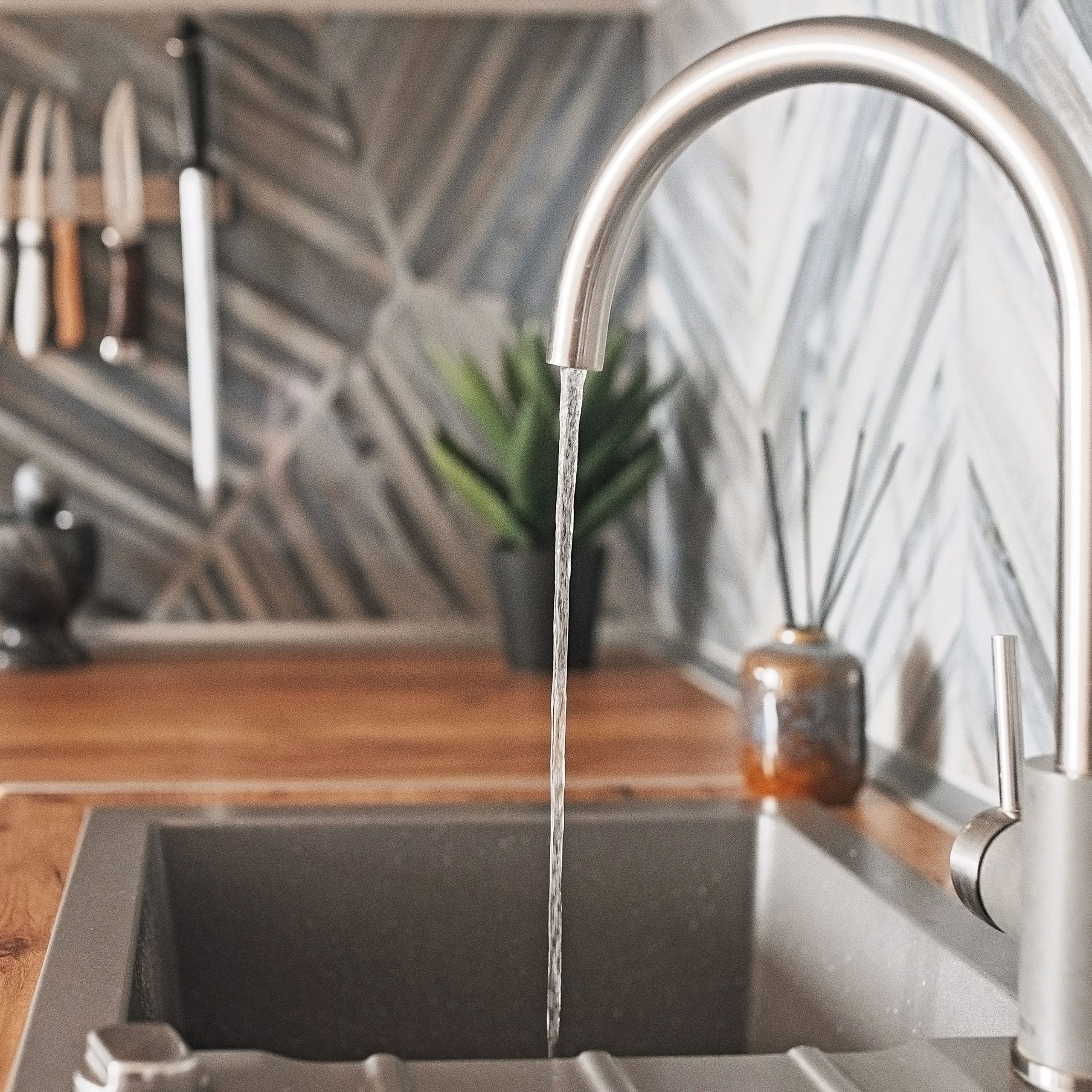 When to Seek Professional Help
When to Seek Professional Help
While many bathroom sink smells can be resolved with DIY solutions, certain situations require professional intervention.
Persistent Odors Despite Your Efforts
If you’ve implemented all the recommended cleaning and maintenance practices but still experience bathroom sink smells, it’s time to consult a professional. Persistent odors may indicate deeper plumbing issues that require specialized tools and expertise to diagnose and fix.
Complex Plumbing Problems
Issues such as damaged pipes, faulty seals, or inadequate ventilation often necessitate the knowledge and skills of a licensed plumber. Professional assessment and repair can prevent further damage and ensure that your bathroom sink remains odor-free.
Mold and Mildew Infestations
If you suspect a significant mold or mildew infestation in your bathroom, professional remediation services may be necessary. Experts can safely remove mold and address the moisture issues contributing to its growth, ensuring a healthy and odor-free bathroom environment.
Professional Solutions for Persistent Smell Issues
Sometimes, despite our best efforts, bathroom sink smells persist. When natural remedies and routine cleanings don’t solve the problem, it may be time to seek professional help. Professional plumbers have the knowledge and tools to address complex issues that might be causing the odors in your bathroom sink. Here are some professional solutions that can help eliminate persistent smell issues:
- Professional Drain Cleaning: Over time, drains can accumulate stubborn clogs that home remedies can’t remove. A professional cleaning can clear these blockages and eliminate smells.
- Camera Inspection: Plumbers can use a specialized camera to inspect pipes and identify hidden problems, such as cracks or buildup, that could be causing smells.
- P-trap Replacement: If the P-trap is damaged or worn out, professionals can replace it to ensure it functions properly to block sewer gases.
- Sealing Leaks: Plumbers can detect and seal any leaks in the plumbing system, which can prevent water from escaping the P-trap and allow smells to enter the home.
- Sewer Line Check: Sometimes, the issue may stem from the main sewer line. Professionals can inspect and repair any damage that could be contributing to the odors.
Don’t hesitate to contact a licensed plumber if the smell from your bathroom sink becomes a chronic problem. They can offer solutions tailored to your situation, ensuring that your bathroom remains odor-free. Use their expertise to get to the root of the problem and enjoy a fresh-smelling bathroom once more.
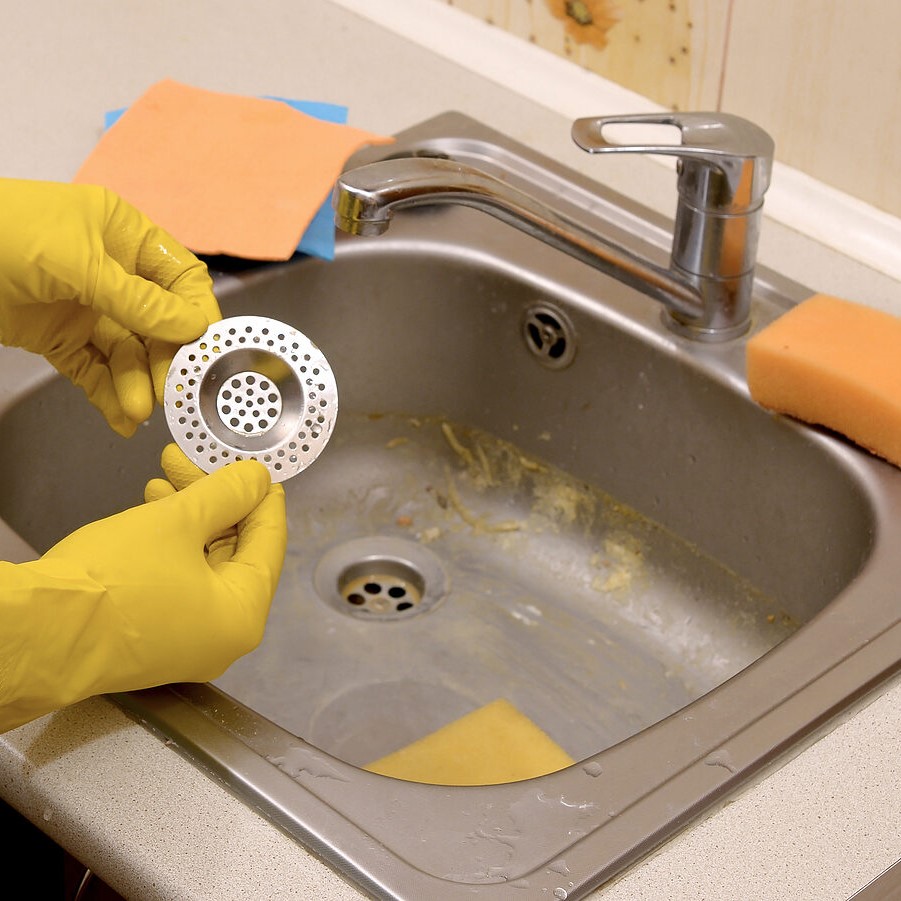 Preventative Measures to Keep Your Bathroom Sink Fresh
Preventative Measures to Keep Your Bathroom Sink Fresh
Taking pre-emptive steps is key to avoiding bathroom sink smells. Ensure ongoing freshness with these measures:
- Daily Flushing: Run water through the sink every day. This keeps the P-trap full and odors out.
- Weekly Cleaning: Do a deep clean every week. Scrub the sink with a gentle cleaner and rinse thoroughly.
- Avoid Clogs: Be mindful about what goes down the drain. Dispose of oils, hair, and other solids properly.
- Periodic Natural Treatments: Use white vinegar and baking soda monthly. These help to maintain clean and odor-free drains.
- Seal and Fix Leaks Promptly: Inspect seals around the sink often. Repair any issues before they lead to smells.
- Professional Inspection: Have a plumber check your sink annually. They can catch potential problems early.
By combining vigilant sanitation with these regular practices, you can keep bathroom sink smells at bay. Ensure your bathroom remains a pleasant, fresh space with careful maintenance and timely interventions.
Advanced Solutions for Persistent Bathroom Sink Smells
If standard cleaning and maintenance practices do not eliminate the bathroom sink smells, consider these advanced solutions to tackle stubborn odors.
Replacing the Drain Trap
Sometimes, the drain trap may be defective or improperly installed, leading to persistent odors. Replacing the drain trap can effectively resolve this issue.
- Choose the Right Fit: Ensure that the new drain trap fits snugly and maintains a consistent water barrier to block sewer gases effectively.
- Professional Installation: Hiring a professional plumber to install the new drain trap can guarantee proper fitting and prevent future leaks or issues.
Installing a Sink Vent
A sink vent can improve drainage and prevent the buildup of sewer gases, eliminating odors at the source.
- Proper Venting: Ensure that your bathroom plumbing system is adequately vented to allow air circulation and maintain balanced pressure, facilitating smooth water flow and preventing odor-prone backflows.
- Consult a Plumber: Installing a sink vent typically requires professional expertise to integrate it correctly with your existing plumbing system.
Using Activated Charcoal Filters
Activated charcoal is a natural and effective way to absorb odors and improve air quality around your bathroom sink.
- Placement: Place activated charcoal filters near the sink area or inside the drain to capture and neutralize odors.
- Replacement: Regularly replace the charcoal filters as per the manufacturer’s instructions to maintain their effectiveness.
Enzyme Cleaners and Biological Drain Cleaners
Enzyme-based and biological drain cleaners can break down organic matter
Regularly Inspecting and Cleaning the Overflow Drain
Many bathroom sinks have an overflow drain, which, if not properly maintained, can harbor bacteria and lead to unpleasant odors.
- Overflow Cleaners: Utilize specific overflow cleaners to keep the overflow channel free from buildup and microbial growth.
- Routine Flushing: Periodically flush the overflow drain with a mixture of vinegar and baking soda to prevent clogging and reduce odors.
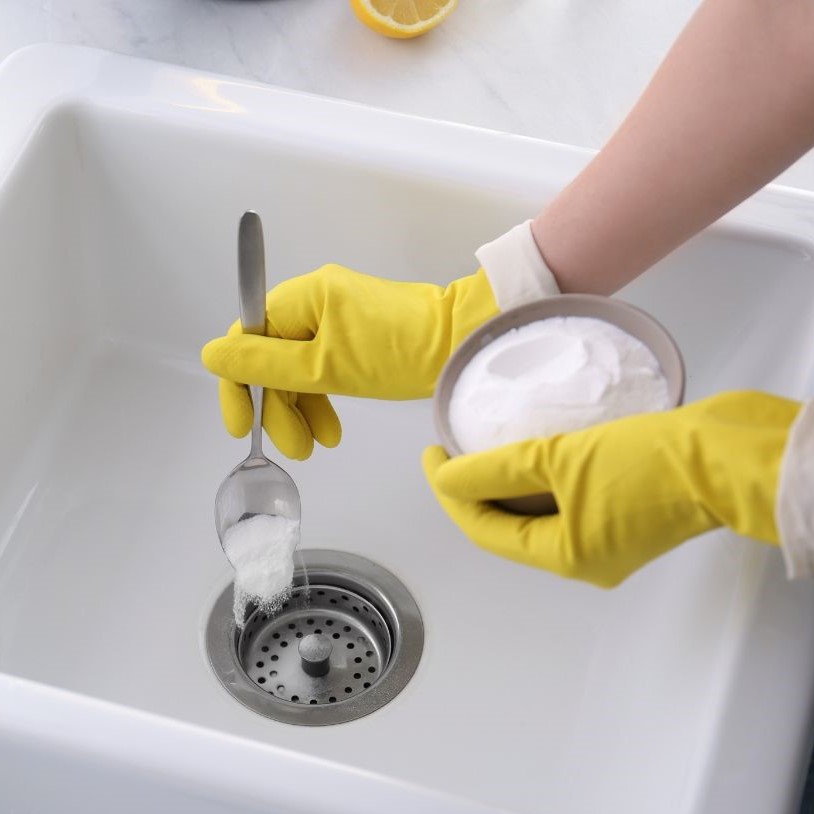 Conclusion
Conclusion
Dealing with bathroom sink smells can be frustrating, but with the right approach and consistent maintenance, you can eliminate unpleasant odors and maintain a fresh, clean bathroom environment. By understanding the common causes, implementing effective solutions, and adopting preventive measures, you ensure that your bathroom sink remains a pleasant and hygienic space.
Remember, regular cleaning and mindful usage are key to preventing sink smells from reoccurring. However, don’t hesitate to seek professional help when needed, as persistent or complex issues require specialized attention. Embrace these strategies to keep your bathroom sink smelling fresh and enjoy a more comfortable and inviting bathroom space.
Investing time and effort into properly caring for your bathroom sink not only enhances the overall hygiene of your home but also contributes to a more enjoyable and stress-free daily routine. Say goodbye to unpleasant bathroom sink smells and welcome a fresh, clean, and inviting bathroom atmosphere.
